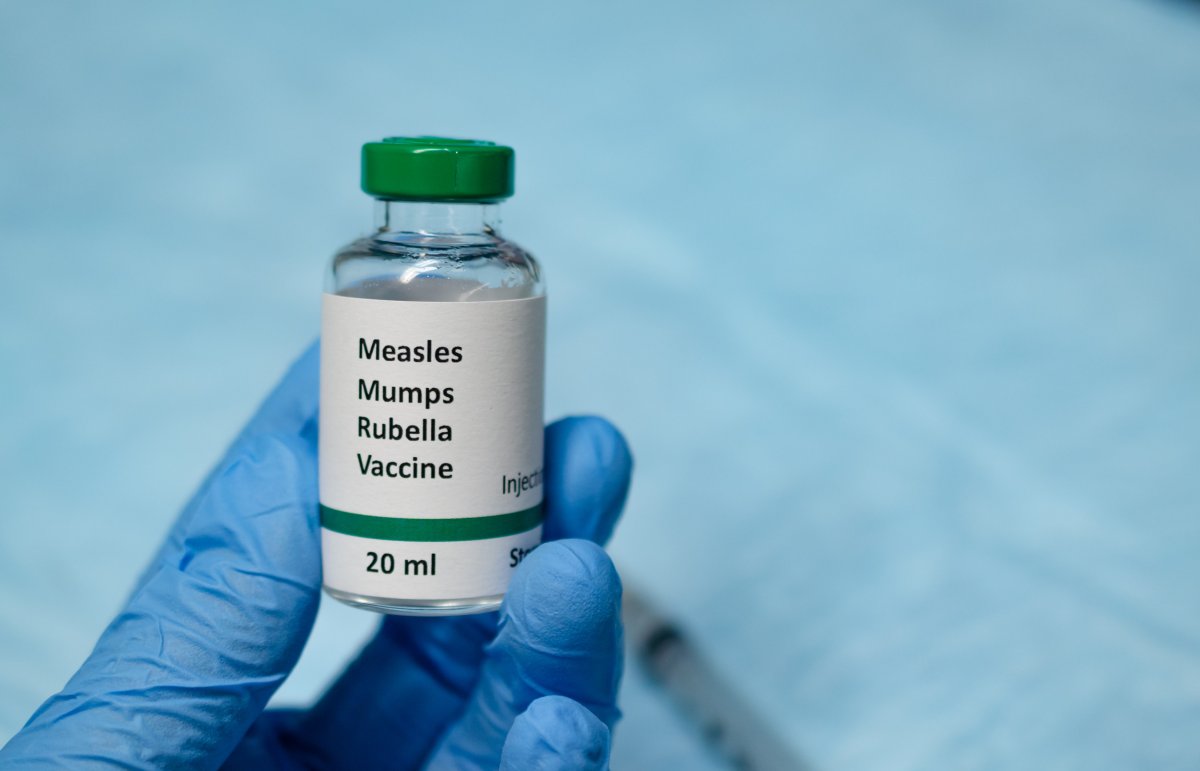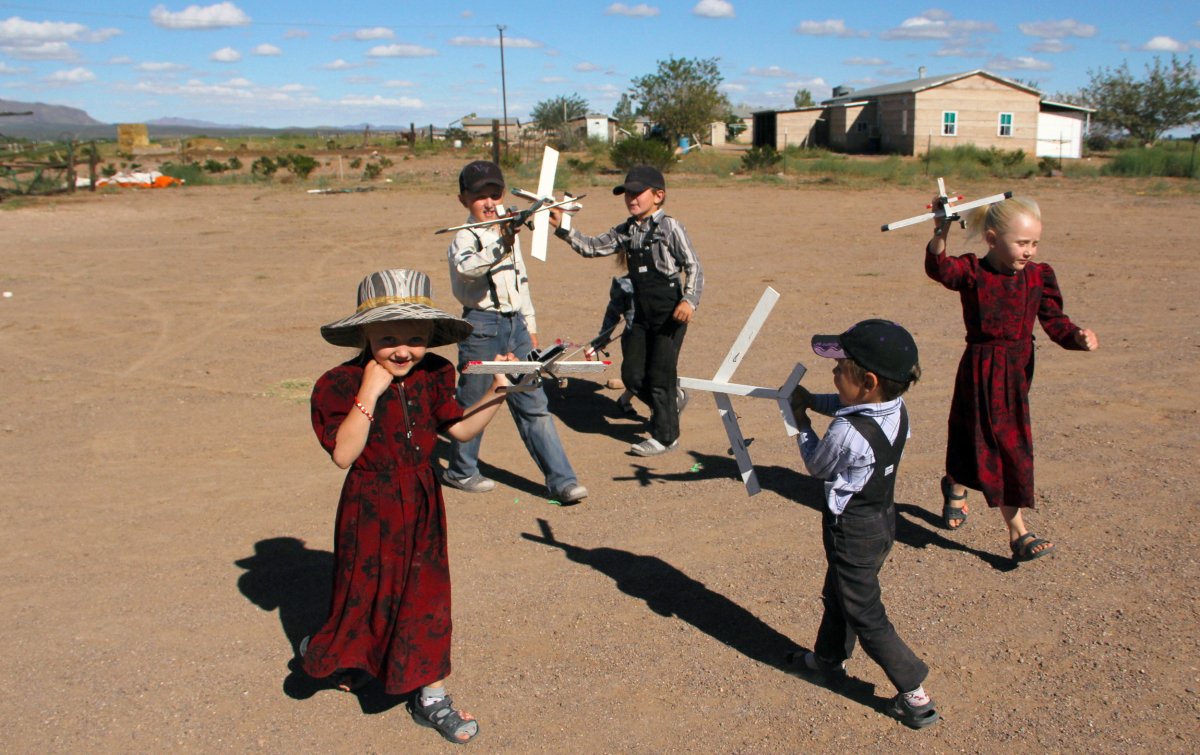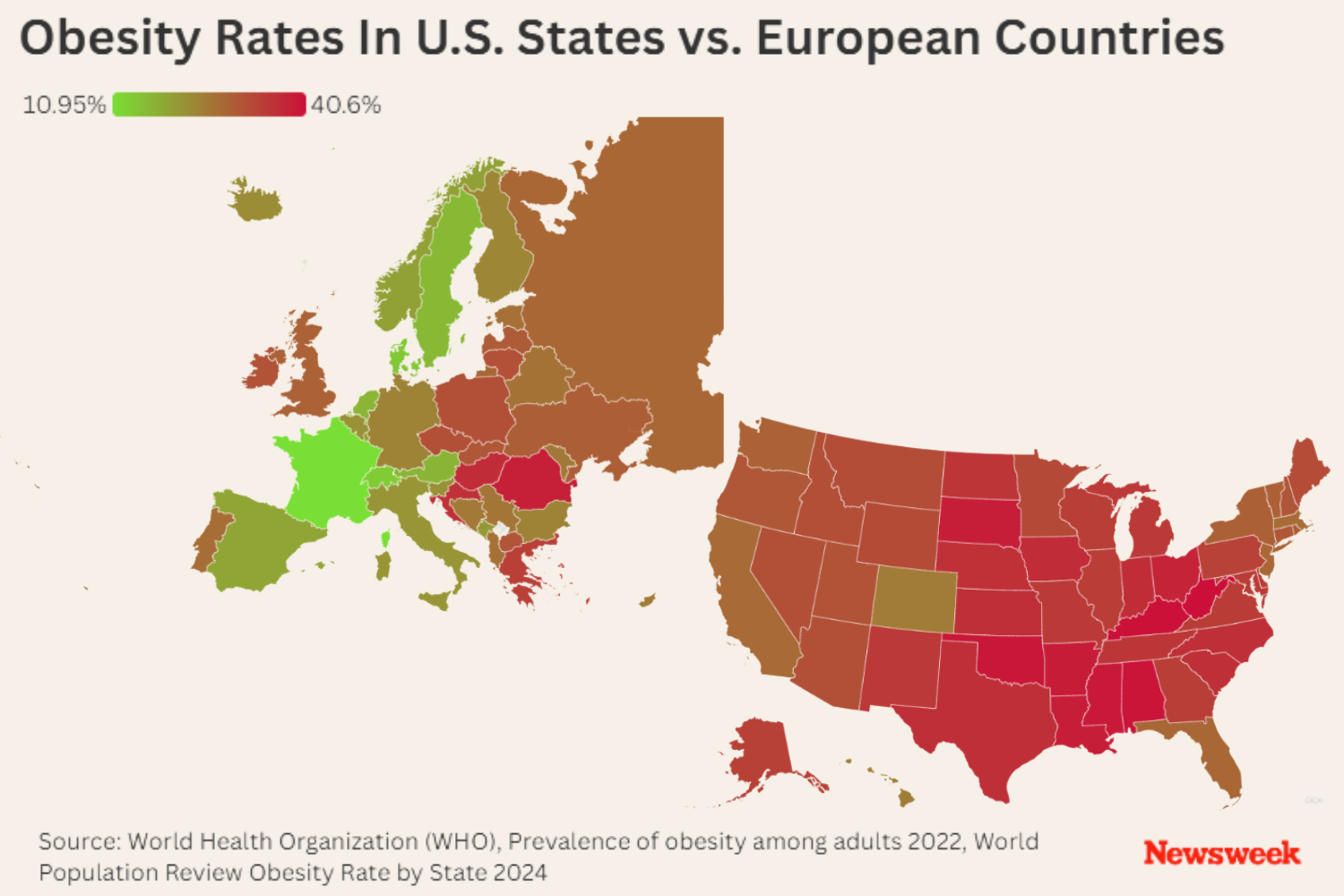A close-knit population of devout Mennonites has found itself at the center of Texas' latest measles outbreak, which has now spread west to New Mexico.
Why It Matters
Measles was thought to be eliminated in the U.S. in 2000, about 30 years after the first MMR [measles, mumps, rubella] vaccine was approved. But a rise in vaccine skepticism in the wake of the COVID-19 pandemic has left a growing number of children vulnerable to the potentially deadly disease across the country.
Public health experts have sounded the alarm that anti-vaccine sentiment could lead to more outbreaks of childhood diseases like measles or polio that were once thought to be eradicated from the U.S. The confirmation of Robert F. Kennedy Jr., who has a history of making anti-vaccine statements, to secretary of health and human services has further fueled these concerns.
What to Know
Gaines County, which counts about 22,000 residents, is the current epicenter of the outbreak. As of Friday, there were 90 confirmed cases across Gaines, Dawson, Terry and Yoakum counties in northwest Texas, according to data from the Texas Department of Health and Human Services.
The majority of measles patients in Texas—85 percent—are children.
Most of the cases have been concentrated in the under-vaccinted, close-knit local Mennonite community, according to Texas Department of State Health Services spokesperson Lara Anton.
In 2010, about one-fifth of the county's residents were believed to be part of the Mennonite faith, according to the Lubbock Avalanche-Journal. Mennonites are a diverse group of Christian denominations rooted in the Protestant Reformation who believe in a commitment to pacifism and nonresistance.
The outbreak has now spread across state lines to New Mexico, just across the border from Gaines County, prompting the New Mexico Department of Public Health to offer free measles vaccination clinics in Lea County.

The outbreak is concerning, but not "unexpected in any way," Dr. Neil Maniar, director of Northeastern University's public health program, told Newsweek.
"When you have something that is as highly contagious as measles, and you combine that with a population where you have vaccination rates that are below the threshold required for herd immunity, it becomes a dangerous combination," he said.
Measles is so contagious that as many as 9 in 10 people whom infected, unvaccinated individuals come into contact with will also be infected—and symptoms only start to show up about four days after infection, Maniar said, meaning people will often go days without spreading the virus without knowing they are infectious.
Dr. Michael T. Osterholm, director of the Center for Infectious Disease Research and Policy at the University of Minnesota, told Newsweek the "compelling need" is to protect children who are at-risk of illness from measles.
The outbreak can pose risks to children who are already vaccinated, he said. Although the vaccine is 97 percent effective, there will still be a certain percentage of vaccinated individuals who will fall ill with the sickness.
What Do Mennonites Believe About Vaccines?
Mennonites who live in Texas' Gaines County generally claim religious exemptions from vaccines—according to The Texas Standard—and the majority of cases are concentrated among that community.
But the Mennonite Church as a whole is not opposed to vaccines. Religious leaders have said there is no basis for religious exemptions and some have even expressed openness to promoting the COVID-19 vaccine.
"The church isn't the reason that they're not vaccinated. It's all personal choice and you can do whatever you want. It's just that the community doesn't go and get regular health care," Anton, of the Texas Department of State Health Services, told the Associated Press.
Mennonites generally leaves it up to an individual to decide whether they want to get vaccinated.
During the pandemic, the U.S. Conference of Mennonite Brethren Churches released a statement that their practice does "not provide the necessary rationale for granting a religious exemption based on the theological convictions of the denomination." Still, they noted individual members may have personal convictions against the vaccine.
"USMB recognizes that we don't all think or believe exactly alike and there are those who may have deeply held convictions about receiving one of the COVID vaccines which are not held by others. However, USMB is not able to make a universal statement which would support an individual's claim that he/she has a religious conviction based on our denomination's theological or doctrinal opposition to the vaccine. That wouldn't have integrity," the statement reads.

According to the Texas State Historical Association, the specific group of Mennonites who settled around Gaines County did so, in part, because private schools were not heavily regulated.
Osterholm said public health officials in the area can work with community leaders to communicate the risks of measles and improve the vaccination rate. These sorts of vaccine campaigns have been successful with other groups, including the Somali community in Minneapolis, he said.
Osterholm emphasized the need for vaccine campaigns before an outbreak begins, particularly in an era with heightened anit-vaccine sentiment.
"If a virus isn't floating around, people can feel comfortable all the time not getting vaccinated. The problem is, that changes very suddenly, just as has been seen in Gaines County," he said.
"Once an outbreak starts, you can try to play catch up with the vaccine. You still end up having many cases with potential for serious illness or death."
Public health officials must work with trusted community leaders to educate people about the benefits and safety of measles vaccines, Maniar said.
"That is a key factor, when we are talking about health education, is to really make this a community partnership. To take the time to understand where different views are coming from in terms of vaccination, and then to educate in a way that is honest, that is transparent, that is accessible for everyone," he said.
Health officials need to "move quickly" to build trust in these communities to mitigate the current and future potential outbreaks, he said.
What Are Measles Symptoms?
Measles is a highly contagious, airborne virus that can cause "serious health complications," particularly for children who are younger than five years old, according to the Centers for Disease Control and Prevention (CDC).
Measles symptoms include a high fever that can exceed 104° F, cough, runny nose, eyes that are red or water and a rash, according to the CDC. More serious complications can include pneumonia and encephalitis.
The CDC notes that a single dose of the MMR vaccine is about 93 percent effective; two doses of the vaccine is about 97 percent effective at preventing measles. Children are advised to get the first dose between 12 and 15 months off age, and the second dose when the are between four and six years old.
Most public schools require the MMR vaccine, though some states allow religious or medical exemptions.
People can protect themselves by wearing N95 respirators when they are in contact with anyone who may have measles, but surgical masks will not be as effective, he said.
People who have been vaccinated should be well protected against serious complications, Maniar said, adding that anyone vaccinated before 1968 may consider talking to their doctors about whether they should get a booster.
What People Are Saying
Albert Pilkington, CEO of the Seminole Hospital District, to The Texas Standard: "You got a population that lives fairly close to us, a religious community of Mennonites, that, you know, they don't believe in putting anything foreign into their body. And so that falls within the avenue of vaccines. And so, you know, once the disease process starts with one person, then let's say it's like a fire on a bunch of dry hay, it kind of burns through pretty quick."
Texas Department of State Health Services to The Hill: "The Mennonite church allows for free choice on vaccination and it is not widely against vaccination. Mennonite families don't seek traditional health care regularly so they are not prompted to vaccinate their children on a schedule and many attend small private schools in their community so they are not required to get vaccinated for school."
What Happens Next
Osterholm warned the outbreak is a "harbinger of things to come" due to the rise in anti-vaccine sentiment, and it's unclear how such outbreaks will stop.
"It's unfortunately demonstrating that these pockets of under-vaccinated children do lend themselves to very significant and dangerous outcomes," he said.
Mainar warned that the U.S. is "going backwards," on vaccines, rather than making progress.
"There should be no reason for us to see measles outbreaks in this country, or anywhere in the world right now, due to the fact that we have a very safe and effective vaccine," he said.



















 English (US) ·
English (US) ·